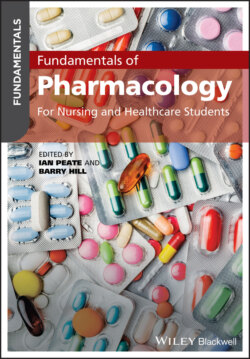Читать книгу Fundamentals of Pharmacology - Группа авторов - Страница 23
Episode of care: Mental health
ОглавлениеMr. Murphy, an 80‐year‐old man, has vascular dementia and lives in a care home; he relies on the care home staff to manage his medicines safely.
Mr. Murphy was admitted to hospital after he had displayed signs of a venous thromboembolism and he was discharged four days later; he was prescribed and was taking anticoagulant therapy. When he was discharged from hospital, he was discharged with an 18‐day supply of medicine. The care home staff failed to order a new prescription for Mr. Murphy after the 18 days lapsed. The systems within the care home had failed to identify that the medication was not given for between 30 and 33 days.
Mr. Murphy was taken back into hospital with a pulmonary thromboembolism and deep vein thrombosis. He was in hospital for over three months where he eventually died.
The care home had failed to adhere to local policy and procedure that helps to minimise medication errors. Regulations and standards are put in place to prevent people from receiving unsafe care and treatment and prevent avoidable harm or risk of harm. Medicines must be supplied in adequate quantities, managed in a safe way and administered appropriately to ensure that people are safe.
In England, the Health and Social Care Act 2008 (Regulated Activities) Regulations 2014: Regulation 12, for example, aims to prevent people from receiving unsafe care and treatment and prevent avoidable harm or risk of harm. Those who provide care must undertake a risk assessment with regards to people's health and safety when receiving care or treatment and make sure that their staff have the appropriate qualifications, competence, skills and experience to maintain people's safety. If an organisation fails to comply with laws and regulations, they may be prosecuted.
